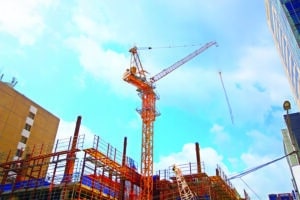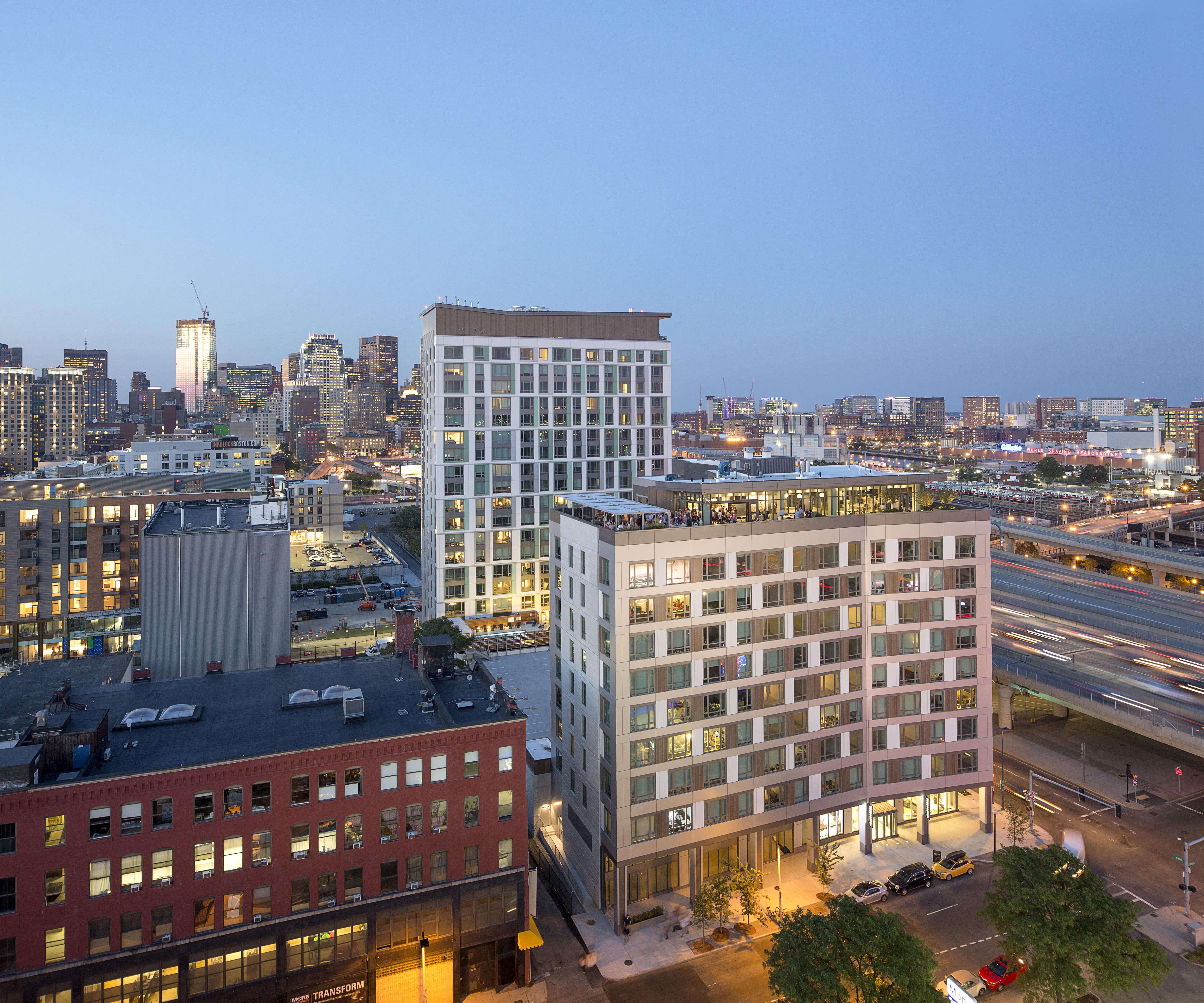Gov. Charlie Baker has issued a new directive that would allow shuttered construction sites across Boston, Cambridge and Walpole to start up again.
Shortly after Banker & Tradesman reported news of Baker’s new directive, however, Boston Mayor Marty Walsh issued a statement saying Boston’s freeze on non-emergency construction was “still in effect until further notice.”
The three communities had ordered all private construction work within their borders to stop last week out of concern COVID-19 could rapidly spread between workers. The state’s development community had raised concerns that the freezes could cost some projects their financing, a fear Baker echoed in a press conference yesterday. Boston had around 130 active construction projects when the freeze went into effect.
“We have a lot of housing construction currently going on in Massachusetts,” Baker said. “To completely lose, potentially, all of that new housing for the commonwealth, housing stock, would be a tremendous loss.”
The Baker administration issued a letter to municipal leaders today stating that all construction, not just activities necessary for emergency repairs or site safety, are designated as “essential services” under an order issued Monday.
“[A]ll construction projects are to ‘continue operations during the state of emergency, but to do so with allowance for social distancing protocols consistent with guidance provided by the Department of Public Health,'” the order reads. “Local policies, regulations or directives that provide otherwise are in direct conflict with the order and should be withdrawn.”
Boston’s ban on non-emergency construction was issued March 16 and required all sites to be locked down for safety as of March 23. Walsh said in a statement issued Wednesday afternoon that the city was working with construction firms and building trades unions to “determine protocols that would allow these sites to safely re-open in Boston.”
“The safety and health of construction workers and all residents of Boston is my first priority, and I am not willing to put that at risk as the virus spreads throughout our communities,” Walsh said. “Large gatherings such as those at construction sites have been proven to escalate the spread of the virus, and Boston must do everything in its power to flatten the curve, and stop the spread of coronavirus.”
The statement from Walsh’s office said the city’s Inspectional Services Department would continue, on a case-by-case basis, review requests for exemptions to the moratorium, granting them “if they support increased public health and safety and precautions are taken to mitigate the risk of exposure to COVID-19 among workers.”
Banker & Tradesman has asked both the Baker and Walsh administrations for comment on their apparently contradictory positions. Cambridge officials told Banker & Tradesman the city’s ban will also remain in place while officials examine Baker’s directive.
The head of the state’s commercial real estate industry trade group praised the Baker administration’s action, which took the form of additional guidance clarifying his Monday executive order directing “non-essential” businesses to close their physical doors and move to all-remote work. The order had listed construction projects as “essential services” but did not explicitly overturn local construction bans.
“Developers were extremely confused after the [executive order] was released since some towns allowed construction and others did not, but construction was listed as essential,” NAIOP-MA CEO Tamara Small told Banker & Tradesman in an email. “The guidance issued today provides clarity for local officials and developers. In addition, it outlines a detailed construction site safety policy so we can ensure that thorough and consistent health protections from site to site are in place for workers.”
Baker’s letter, signed by chief legal counsel Robert Ross, states that the new guidance was necessary to ensure “an appropriate balance statewide between taking actions necessary to combat the spread of COVID-19 and avoiding unnecessary hardships to the public.”
The letter contains examples of strict guidelines for state construction projects as examples for how local officials could create job site guidelines to protect workers.
“There’s no question that if people should be working on job sites they need to have access to sinks, warm water and hand sanitizer and a commitment to implementing the social distancing and physical distancing we’ve been talking about,” Baker said at a press conference Wednesday afternoon. “Communities have made clear to us that they look forward to makings sure sites in their communities live up to those, and if they don’t, they’ll do something about it, which is how it should be.”




 |
| 


